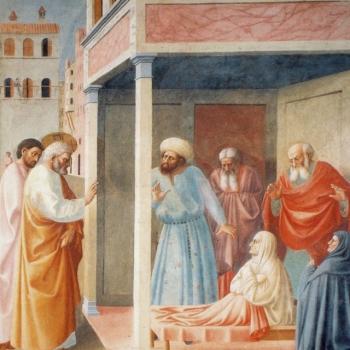Growing seasons will shorten, especially in the tropics, and crop production is predicted to fall in Africa, Latin America, and Central and South Asia. Millions are expected to face severe flooding, especially in the poor and heavily populated mega-deltas of Asia and Africa. Disease and malnutrition are expected to increase, while significant percentages of plant and animal species will face extinction. In short, those of us in the relief and development community will have much more work, but fewer remedies.
Some of the early symptoms are already being felt. Stan Doerr, Executive Director of ECHO, who works with poor farmers around the world, recently told me, "It is clear to anyone working in small-scale agriculture that the rules have all changed." What has been true for generations is no longer true. Indigenous knowledge that has been built up and treasured since time immemorial is suddenly worthless.
Indeed there is a veritable chorus of voices coming from those who are more in tune with their environment than we are. Tearfund, an evangelical relief and development agency based in the United Kingdom, has done a good job of collecting these stories from their partners, and shares them in their publication Dried Up, Drowned Out, available on their website (www.tearfund.org) together with a host of other climate change information.
Nor has Floresta's network been silent. We were moved by the testimony of one farmer in Oaxaca who explained that first the droughts became more frequent. He had watched a nearby lake slowly drying over the last ten years. Then bark beetles killed the trees, and finally it was the forest fires that had become a constant threat. Of course in isolation none of these stories is evidence of climate change. But there is an eerie consistency to these accounts from around the world.
A moral response involves both adaptation and mitigation. Global warming is inevitable; climate change cannot be stopped. We must prepare for it, and, most importantly, help the poor and vulnerable to prepare with more resilient crops, better water storage, and stronger social services, such as access to microcredit and healthcare. But our lifestyle choices still have significant impact on the magnitude and rate of climate change, and, in turn, upon the lives of millions of those Jesus calls us to protect.
It is easy to look at this storm brewing and either deny or despair. But we can do neither. It is our watch. And as I was reminded recently, "This is my father's world. And though the wrong seems oft so strong, God is the ruler yet."
Scott C. Sabin is the executive director of Floresta, a Christian nonprofit organization that reverses deforestation and poverty in the world by transforming the lives of the rural poor (www.plantwithpurpose.org). This article first appeared in Creation Care Magazine and is reprinted with permission.




